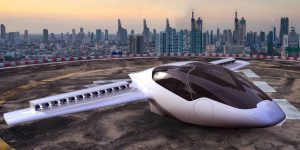
Zenlabs Energy has received $3.5 million from the US Advanced Battery Consortium (USABC) to co-fund a two-year project focusing on electrolyte and active materials in silicon-dominant anode cells. Jet maker Lilium has licensed the technology to power its zero-emission aircraft expected in 2025.
The project at Zenlabs Energy in Fremont, California, is already underway with the new grant, including a 50-per-cent cost share. Research currently revolves around materials that form a stable passivation layer on both the anode and cathode surfaces. This is to address the remaining challenges associated with high-energy, high-power and low-cost silicon-dominant anode cells for EV applications, so Zenlabs.
For funding through USABC, it is the third time the subsidiary of the Council for Automotive Research (USCAR) has awarded money to Zenlabs.
“The low-cost/fast-charge contract award with Zenlabs is part of USABC’s broad battery technology research and development program,” said Steve Zimmer, executive director of USCAR. The Consortium operates by a cooperative agreement with the US Department of Energy (DOE).
Lilium is also no stranger to Zenlabs and has invested in the start-up in 2021. Engineers at the German e-jet maker believe the new technology will be able to power its Lilium eVTOL aircraft within a few years. As an investor, Lilium has exclusive rights to use the battery cell technology in its planned regional jet operations.
“Our team scouted more than 100 companies along the entire battery value chain from raw material suppliers through to cell developers, manufacturers, and recycling companies,” the company stated. “Based on that research, we concluded that Zenlabs’ pouch cells, lithium-ion batteries using high-silicon anode and high-nickel cathode, offered the best solution for achieving our needs through performance, certification, and into scale production.”
In its electric aircraft, Lilium aims for an operational range of around 175 kilometres (108 miles), assuming a short 10-second vertical take-off at its maximum take-off weight and a brief 45-second vertical landing.
The company says Zenlabs’ technology will be able to achieve this since it will deliver a high average specific power of 2,500 watts per kilogram during the short take-off and landing and around 250 watt hours per kilogram in cruise flight, leaving a 20% energy reserve after landing.
Porsche joint venture Customcells will manufacture Lilium’s battery cells using Zenlabs’ technology under license, asserting that its cells and battery modules will meet anticipated safety regulations from the European Union Aviation Safety Agency (EASA) and the US Federal Aviation Administration (FAA).
